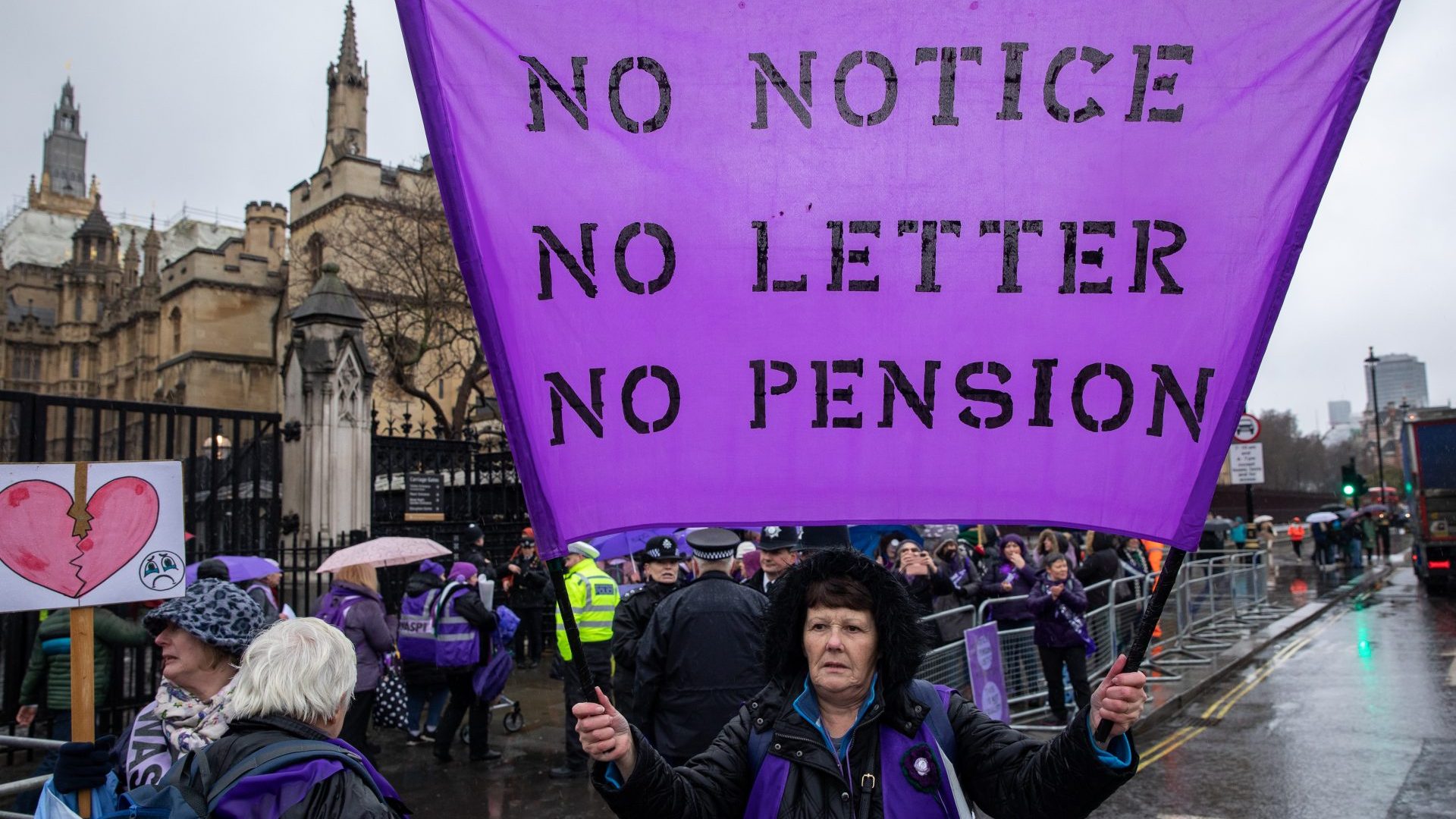On the surface, it’s the stuff of which modern ITV dramas are made. On Thursday, the parliamentary ombudsman suggested compensation totalling up to £10.5 billion for a group that has been campaigning for years about their mistreatment by successive governments, having failed to find justice either in parliament or the courts. What a fitting last scene the eventual triumph will make.
Except with this particular case, nothing is remotely as it seems. The campaigners are still furious, the government has signalled it is unlikely to pay the compensation, and many of us aware of the ins and outs of the case aren’t at all sure they actually deserve it. Let’s see if we can un-ITV the story.
The issue at stake is the equalisation of the pension age of women and men. Women were previously allowed to retire at 60, several years younger than their male counterparts, despite consistently having a longer life expectancy than men.
No-one, including the campaign group at the centre of this story, is arguing that it was unfair to equalise the retirement age, and they are not calling for it to be reversed. Instead, a group representing women born in the 1950s described as the “WASPi women” are arguing that they should have been allowed to retire at 60, even if younger women should not.
The argument centres on whether women were given enough notice that their state pension age was changing. There are complexities to this as the timetable was changed in 2011, but the decision was announced 15 years before the first retiree was affected by it.
The government also avoided the so-called cliff edge factor of someone born on March 31 getting to retire at age 60, but someone born a day later having to work for six years more, by phasing in the change gradually. It is the speed at which this phased change happened that was later changed.
Everyone concerned had at least 15 years between the change in policy and their retirement, and many had several years more. The dispute is whether the government did enough to notify them, with previous legal cases (all of which were substantively lost by the WASPi women) centring on small details of letters posted with notification and the like.
The parliamentary ombudsman was not ruling on whether the women should have received their pension at 60 (or whether they should be receiving back pay to make up for that not happening), because that was not in its power. Instead, it was ruling on how the complaints were handled and the process carried out.
Even here, it is hard to muster much sympathy for the cause in general, especially because the campaign group concerned has launched crowdfunding campaigns suggesting it was campaigning for “full restoration” of pensions, which independent experts think is all but impossible.
There are other sympathy issues, too. Typically when a campaign group represents a large group such as “women born in the 1950s”, they can come up with astonishingly moving case studies.
But of the six in the WASPi case study, one involved a self-employed woman who had set nothing aside for a private pension and who aged 58 discovered she would not get her state pension at 60 – a regrettable situation that sadly looks like woeful planning on her own part. Another complaint centred on the would-be retiree having bought a second home mortgage-free, but finding she struggled with the upkeep on that second home without her state pension.
Government funds over the last decade have been stretched thin – and they will be stretched for at least the next decade, too. Just the compensation recommended by the Ombudsman could cost £10.5 billion, and for the poorer pensioners any payout would be clawed back from their Pension Credit, meaning only the richer ones would benefit. “Full restitution” meanwhile would cost at least £60 billion, and likely considerably more.
One irony among all this is that the WASPi women have received a large chunk of this money already, even if they are unlikely to believe this: Pensioners have had a much better ride of it than working-age adults since 2010, thanks in large part to the extremely expensive triple lock.
One of the things that made that very generous policy possible was, of course, equalising the pension age. It can be far too easy for millennial writers to fall into stereotypes about boomers, but the cause here is asking for boomers only to get paid for an extra six years of retirement, at the expense of everyone else. That can’t be right.











